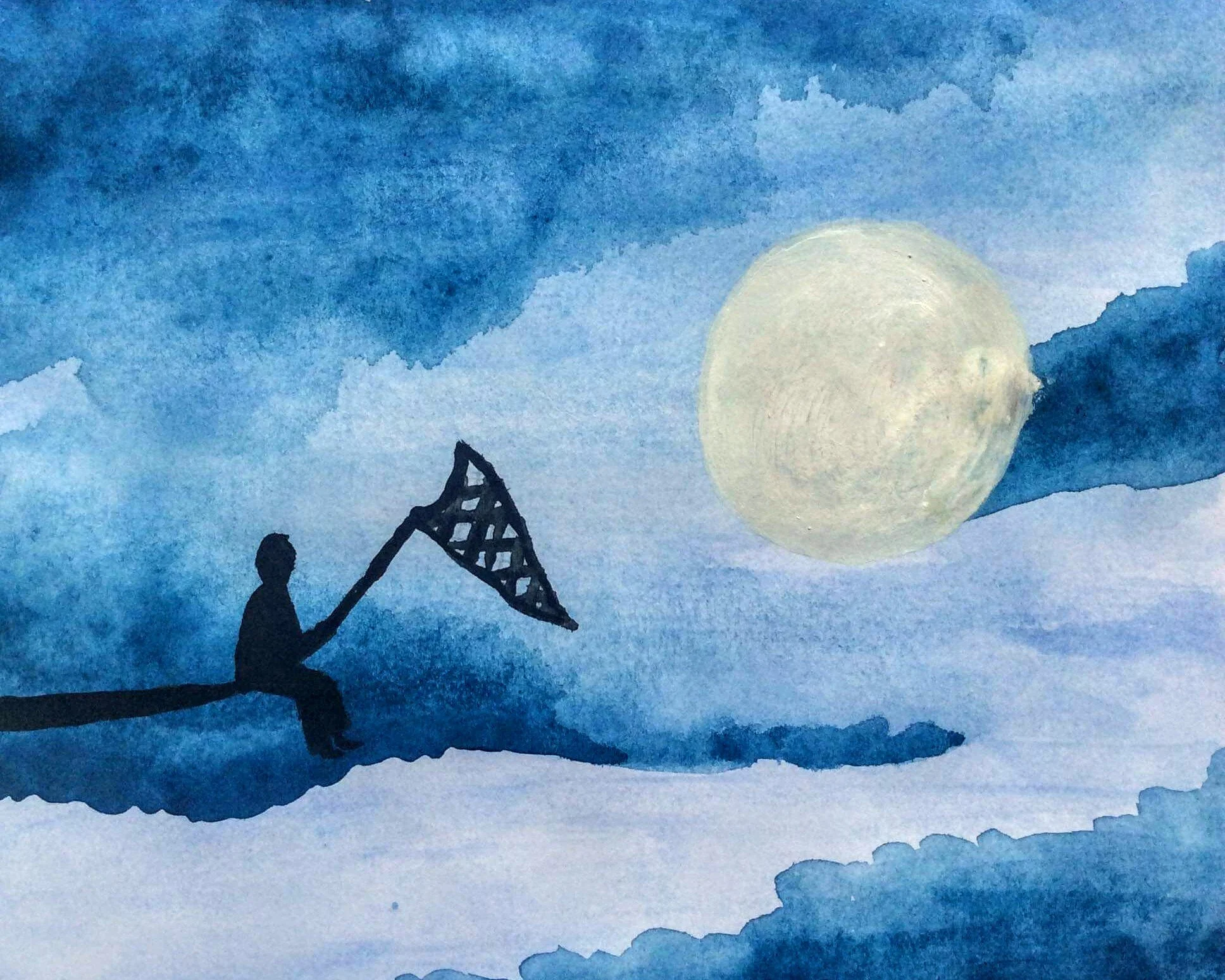Faded Pages and Happier Places: The Power of Books in Trying Times
Illustrated by Samantha Fulton. On a January evening last year, as I anxiously stuffed clothes into dry bags in preparation for my three-month trip to South East Asia, I was determined to fit at least one book into my already over-packed bag. Of course, my luggage did include a Kindle loaded with far more books than I would ever get around to reading, but it felt important to me that I had just one physical book too. The book I chose was Alice Oswald’s poetry collection, The Thing in the Gap-Stone Stile.
I have the same copy beside me as I write this now, and inside it I have come across a crumpled piece of paper acting as a semi-functional bookmark, on which my travel friends and I once scribbled the words, ‘we ate deep fried sweet potatoes’ over and over again, comparing our handwriting.
The Thing in the Gap-Stone Stile is Alice Oswald’s first poetry collection. She writes mainly about nature and looks largely to the natural world for inspiration. The narrative voice is meditative and calming. There is something about Oswald’s writing style that is deeply entrancing; it transports me out of my head space and into a safe space, one that feels known.
I took the book away with me as a source of comfort, anticipating that I would seek something homely and familiar being so far outside of my comfort-zone. What is ironic is that the book in its current battered state, as a nostalgic keepsake of times past, is providing me with much more comfort now, in this time of heightened anxiety, than it ever did when I was abroad. Perhaps this is because the uncertainty and instability that permeates the present is tinged with fear, whereas when I was away it was filled more with a sense of excitement. Yet, I think it is also because this book now stands as a relic of past adventures and fears overcome, both grounding me emotionally and taking me back to a time when the prospect of a pandemic would have seemed absurd.
Indeed, our current collective predicament is perhaps the most uncertain we have ever experienced, but the emotions we are feeling are not necessarily alien and we should try to respond to them in habitual ways.
There are many ways that books can provide comfort. Re-reading familiar favourites can transport us to fictional worlds that are happier than our current reality, just as reading new and captivating stories can provide much needed escapism, but I’d argue that there is something emotive in the mere process of reading itself. I refer directly to reading physical books. The weight of a book in my hands and the promise of distraction it brings is an immediate source of solace for me.
So as I sit here, holding a faded and over-read copy of Alice Oswald’s The Thing in the Gap-Stone Stile, I’m at once saddened and comforted by the memories it elicits. Yet, what I take from this wave of bitter-sweet emotion is an admiration for the power books have in times like these.
The world is uncertain. What we recognised as our reality yesterday has been distorted beyond recognition today, but the weight of a book in your hands is a truth that hasn’t been taken away from you. So turn your phone off, take a book off your shelf. Hold it. Turn the pages and let yourself escape into a fictional world, even if just for an hour. I’m going to open my book on page forty-three, and let Alice Oswald take me on a journey to try and catch the moon in a net (for the millionth time).
